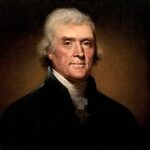Thomas Jefferson’s pursuit of Aaron Burr marked a dark chapter in presidential power. The Burr conspiracy trial began when Jefferson received reports of Burr’s alleged plot. Burr supposedly planned to create a separate nation in the Southwest territories. ⚠️ Jefferson publicly declared Burr guilty before any trial commenced. This presidential proclamation violated basic due process principles.
The Treason Charges
Jefferson pushed for treason charges despite lacking concrete evidence. The Constitution requires two witnesses for treason convictions. Federal prosecutors struggled to meet this demanding standard throughout the proceedings. Burr’s military expedition never materialized into actual rebellion against the United States.
Presidential Pressure on Courts
Jefferson pressured federal judges to ensure Burr’s conviction. He provided prosecutors with government documents and witness testimony. 📊 The president spent over $100,000 pursuing the case relentlessly. Chief Justice John Marshall presided over the trial in Richmond, Virginia. Jefferson’s interference raised serious questions about judicial independence and constitutional separation of powers.
The Verdict and Aftermath
Marshall ultimately acquitted Burr due to insufficient evidence of treason. The Burr conspiracy trial exposed dangerous precedents for executive overreach. Jefferson’s actions demonstrated how presidents could weaponize the justice system against political enemies. 🔥 This controversial decision damaged Jefferson’s reputation and strained constitutional boundaries permanently.
Impact:
The Burr conspiracy trial’s consequences extended far beyond Aaron Burr’s acquittal. Jefferson’s aggressive prosecution established troubling precedents for future presidents. The case demonstrated how executive power could threaten judicial independence systematically.
Constitutional Separation of Powers
🔥 Jefferson’s interference weakened the constitutional balance between branches of government. Federal judges faced unprecedented presidential pressure during the proceedings. Chief Justice Marshall’s resistance helped preserve judicial independence for future generations. The trial showed how easily presidents could abuse prosecutorial authority. Constitutional scholars criticized Jefferson’s public pronouncement of guilt before trial.
Political Ramifications
Federalist opponents used the trial to attack Jefferson’s character and judgment. The president’s reputation for constitutional restraint suffered permanent damage. Jefferson’s own party members questioned his heavy-handed approach to justice. 📉 Public opinion turned against the president’s relentless pursuit of Burr. The failed prosecution weakened Jefferson’s political standing in his second term.
Long-term Legal Precedents
The trial established important limits on presidential power in criminal prosecutions. Marshall’s strict interpretation of treason requirements protected future defendants from political persecution. 🌍 International observers noted America’s ability to resist executive tyranny successfully. The case strengthened the principle that presidents cannot dictate judicial outcomes. Future generations would reference this trial when presidents overstepped constitutional boundaries. The Burr conspiracy trial ultimately reinforced America’s commitment to due process and judicial independence.
